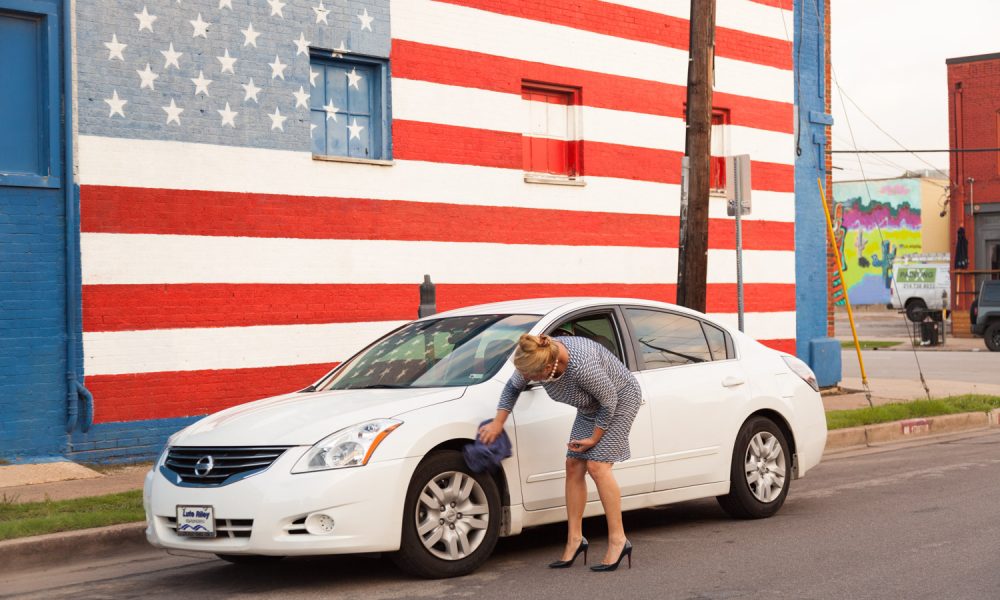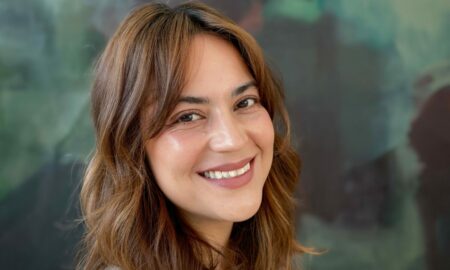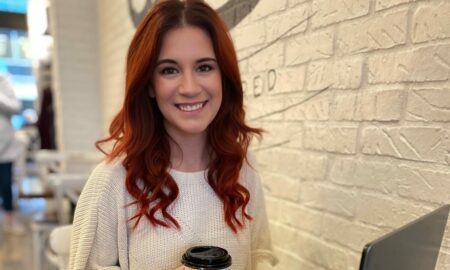

Today we’d like to introduce you to Michelle Corson.
Michelle, please share your story with us. How did you get to where you are today?
On the Road Lending grew out of my finance background and the logic of impact investing — if we can recycle capital, we can do so much more with it! I love cars and would have a different one for every day of the week. (I’m experimenting now with Audi’s subscription program where I can rotate among eight different models). It’s hard to imagine how difficult life is without a personal vehicle, especially if you are a single parent. All of the markets in which we operate (which currently includes four states) are so spread out geographically that it means people are very limited in where they can work if they don’t have a car. Having reliable personal transportation provides so much for people — the ability to get better work, better school options for their kids, healthier food, greater access to medical care and most importantly more time.
More than 90% of our clients are purchasing cars that are better for the environment than what they drove before with an average reduction in greenhouse gas emissions and fuel consumption of 35%. This means that we can clean up our air and still give people the freedom of mobility that owning a car provides.
We have just inked a $10 million partnership with Goldman Sachs to increase our lending capacity and continue to scale across the US, which will include a Midwest regional expansion next year. We are also launching a collision repair business with the help from the founders of Service King, Toyota and State Farm. This business will repair damage to vehicles referred by insurance companies or the general public and train the hard-to-employ in this field. We will teach the formerly incarcerated how to become body techs, the disabled will learn estimating, and women will learn how to weld and paint.
We’re always bombarded by how great it is to pursue your passion, etc – but we’ve spoken with enough people to know that it’s not always easy. Overall, would you say things have been easy for you?
On the Road’s journey has not been smooth. In the beginning, very few people could even comprehend that transportation was a barrier for low-income families because it isn’t a barrier for them. They have cars that take them wherever they need to go and if the car has an issue the dealer brings them another one. They have no understanding of the challenges that come from a daily struggle to just get anywhere.
Besides the lack of understanding about transportation, there was also difficulty with our impact investing model. We are a hybrid that operates in the grey space in between strictly nonprofit and profit-maximizing businesses. It made for lots of challenges raising money. I wasn’t sure we would even make it for the first several years.
So, as you know, we’re impressed with On the Road Lending – tell our readers more, for example what you’re most proud of as a company and what sets you apart from others.
On the Road Lending is the only business of its kind that we are aware of in the US. We have a unique structure that includes a nonprofit services arm (providing vehicle purchase help and financial coaching) and a for-profit impact investment company that serves as the lienholder on all of our car loans. Although our clients are typically deep subprime borrowers, we are very different from a subprime “tote the note lot.” Their model is designed with a built-in expectation of the borrower’s failure. We use character-based lending, where all borrowers pay the same rate, as long as they are forward-thinking and trying to make better financial decisions.
We say that our car loans are life-changing because they are. Our clients do not want to let us down and it shows in our very low default rate of around 3%.
I am most proud of building a company that demonstrates you can create a viable, sustainable business that helps people to have better lives.
So, what’s next? Any big plans?
We are needed everywhere in the US and have been asked to expand into countless markets, both urban and rural. When we are much larger it is my hope that we can change policy-makers’ views on cars and recognize that we can help the environment while also helping working families. I would also love to see banks and other financial institutions look at risk in a way that is less punitive to people with challenged credit.
Contact Info:
- Address: 1305 Wycliff Avenue
Suite 140
Dallas, TX 75207 - Website: www.ontheroadlending.org
- Phone: 214.226.2542
- Email: info@ontheroadlending.org
- Instagram: https://www.instagram.com/ontheroadlending/
- Facebook: https://www.facebook.com/ontheroadlending/
- Twitter: https://twitter.com/OTRLending
- Other: https://www.linkedin.com/company/11205981/




Image Credit:
John B. Sutton, Jr.
Sutton Photography
Suggest a story: VoyageDallas is built on recommendations from the community; it’s how we uncover hidden gems, so if you or someone you know deserves recognition please let us know here.

















